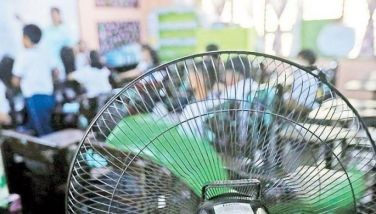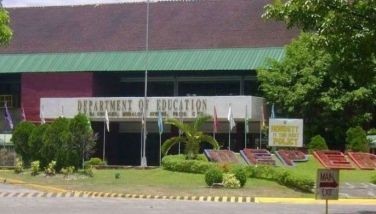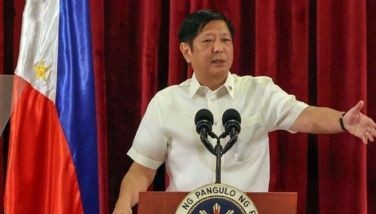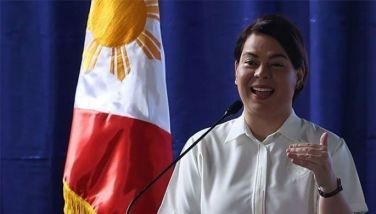Senate may not compel Cabinet members to attend hearing — Panelo
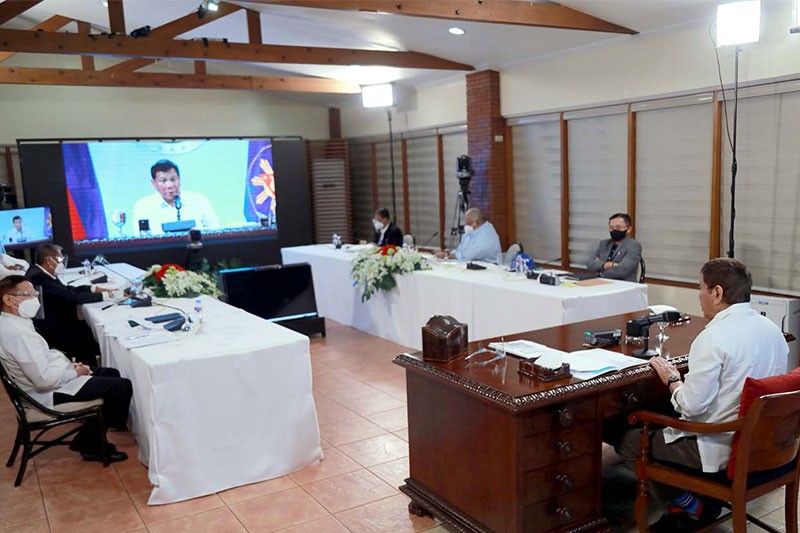
MANILA, Philippines — Senators may not compel officials from the executive branch to attend their hearings if they are just conducting a "question hour" and are not discussing the possibility of passing a new law, President Rodrigo Duterte's chief legal counsel said Wednesday.
Last Monday, Duterte required Cabinet members to seek permission from him before attending Senate hearings, saying such inquiries are disrupting the work of officials including those involved in pandemic response. His directive came as senators are probing the administration's allegedly overpriced purchases of COVID-19 response supplies like face shields and personal protective equipment.
Sen. Richard Gordon, the chairman of the committee conducting the investigation, has said it would be a "big mistake" to prevent Cabinet members from attending hearings because it would show that the administration is hiding something.
But chief presidential legal counsel Salvador Panelo argued that while the congressional power of inquiry is expressly granted in the constitution, the Supreme Court "also takes judicial cognizance of the fact that the right of Congress to conduct inquiries in aid of legislation is susceptible to abuse."
"For one, the inquiry itself might not properly be in aid of legislation and just be a veiled usurpation of judicial functions — similar to what is happening now," Panelo said in a statement.
Panelo noted that Duterte's critics have been citing the case of Senate vs. Ermita to question the president's directive.
"They (critics) may have not fully appreciated Senate vs. Ermita, the subject matter of which is Executive Order (EO) No. 464 issued by then President Macapagal-Arroyo, that was only partially invalidated by the high court," he added.
Citing the Supreme Court ruling on the Senate vs. Ermita case issued in 2006, Panelo said the question hour under Section 22 of Article VI of the Constitution is different from inquiries in aid of legislation under Section 21. According to him, the provision on the question hour "does not empower the Senate to resort to compulsory processes and compel the attendance of department heads belonging to the executive branch."
"What the Senate is performing now is, at most, its authority under section 22 on question hour as we note that no new legislation is being contemplated by its members. Hence, it may not compel department heads to attend its hearings nor cite them in contempt if they refuse to participate," Panelo said.
"This was actually the ruling in Senate vs. Ermita where the Supreme Court upheld as valid the provisions in EO 464 requiring department heads to secure the consent of the President prior to appearing before the Congress in relation to Section 22 on question hour," he added.
According to the ruling, while sections 21 and 22 are closely related and complementary to each other, they "should not be considered as pertaining to the same power of Congress." The high court said one of the provisions relates to the power to conduct inquiries in aid of legislation, whose aim is to elicit information that may be used to create laws. The other pertains to the power to conduct a question hour, which seeks to "obtain information in pursuit of Congress’ oversight function."
"When Congress merely seeks to be informed on how department heads are implementing the statutes which it has issued, its right to such information is not as imperative as that of the President to whom, as chief executive, such department heads must give a report of their performance as a matter of duty," the high court ruling read.
"In such instances, Section 22, in keeping with the separation of powers, states that Congress may only request their appearance. Nonetheless, when the inquiry in which Congress requires their appearance is "in aid of legislation" under Section 21, the appearance is mandatory," it added.
Even if the Senate is able to convert its hearings to one that is in aid of legislation, Duterte's directive would still stand because invitations may be assessed to determine if executive privilege may be invoked, Panelo said.
"While we agree that the Senate has the authority to conduct hearings, the mutual respect demanded from co-equal branches of government dictates that these must be done in such a way that it is free from bias and prejudice," the president's chief legal counsel added.
Panelo also disputed Gordon's claim that Duterte is practically "inciting to sedition" when he called on officials to ignore senators.
"The remarks of Senator Gordon against the President on inciting to sedition may thus actually refer to his committee. It is them who have been restraining the executive branch to do its work, including addressing the present pandemic, by compelling key officials to a hearing which has been described by many as an investigation in aid of election," Panelo said, referring to the Senate blue ribbon committee.
Panelo said congressional inquiries must be conducted efficiently so that the invited officials could still perform their functions.
"Rambling inquiries that partake of the nature of witch hunts or fishing expeditions should be refrained from, particularly those that practically prevent a body or agency of government from performing its functions," he said.
"It behooves Congress to keep itself in check in its ostensible conduct of official business, lest it transgress the limits prescribed by the Constitution
- Latest
- Trending


















